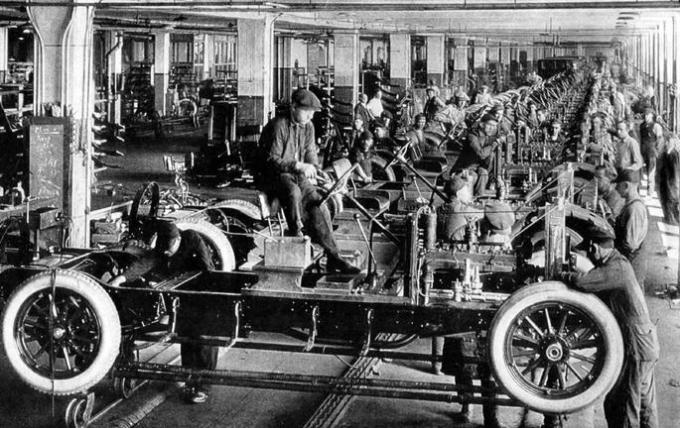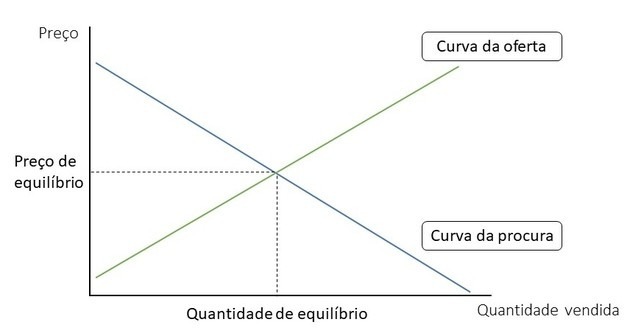Privatization is the process by which public companies pass into the hands of the private sector. In this process, companies that belonged to the state are sold to the private sector, which starts to administer them. Sales are usually made through public auctions.
Once sold, ownership of these companies becomes the private sector and the State no longer controls them. However, it is common for privatized companies to be submitted to regulatory agencies, as is the case in the telecommunications sector.
Role of the State in the Economy
The central point of the discussion on the privatization of public companies is the role of the state in the economy.
Defenders of privatization favor less state interference in the market and advocates of maintenance of state-owned companies believe that these companies have an important role in the development of the parents.
Why are companies privatized?
Privatizations are part of ideas based on economic liberalism, inspired by the thinking of the Enlightenment philosopher Adam Smith, who defended the non-intervention of the State in the economy.
Smith coined the famous term "invisible hand of the market", according to which the market is self-regulated, without the need for government interference.
Liberalism adopts a new guise in the modern world from the 1980s onwards and comes to be called neoliberalism. Neoliberal thinkers are contrary to the idea ofwelfare state, which had lasted for decades and which defended the state as a driver of the economy.
Faced with the crises that the countries were facing at that time, this model of the welfare state began to be replaced by liberalizing measures, such as the privatization of state-owned companies.
It was aimed that way, reduce the size of the state.
know what it is welfare state and liberalism.
Privatizations in Latin America
The Latin American nations were also going through a strong crisis and in 1989 a meeting was held in the United States with the objective of elaborating neoliberal recommendations for these countries to leave the crisis.
This meeting was known as Washington Consensus and the measures proposed by economists on that occasion were:
- Privatization of state-owned companies
- Commercial opening and reduction of customs tariffs
- Decrease in State Spending
- Tax reduction for companies
At first they were suggestions, but they ended up becoming prerequisites for institutions such as world Bank and IMF for granting loans and for participating in economic cooperation projects.
know more about economic liberalism, invisible hand and Washington Consensus.
Privatizations in history in Brazil
During the 1980s, Brazil was going through a strong economic crisis, with high inflation and instability. Proponents of privatization believed that the state should focus its efforts on health, education, security and regulation.
Thus, in the early 1990s, Brazilian state-owned companies began to be privatized.
Privatizations between 1990 and 2002
The idea of a smaller and less intrusive state in the economy was strengthened and in 1990, during the Collor government, the National Privatization Program (PND).
During his government, 18 state-owned companies were privatized, including the USIMINES and the SIDERMINES - from the mining and steel sectors, respectively.
After the impeachment of Fernando Collor, Itamar Franco takes over. During his administration, large companies were privatized, such as the National Steel Company (CSN) and the embraer.
Then, when Fernando Henrique Cardoso takes over, the longest period of privatizations to date begins. The main sectors affected by privatizations during FHC's government were: steel, mining and the electricity sector.
Examples of companies privatized in this period are the light, from the energy sector, the Vale do Rio Doce Company (CVRD), the Telebras it's the Bank of the State of São Paulo (Banespa).
Understand what a impeachment.
Concessions between 2003 and 2016
During the Lula and Dilma administrations, a different option was adopted in relation to public companies and the State's infrastructure. Between 2003 and 2016, instead of privatizations, concessions were made to the private sector, guaranteeing the State ownership of its companies.
The concessions were made, above all, for federal highways, as is the case of BR 101, BR 116 and BR 381. And for the sector of generation of electricity, as is the case of the Santo Antônio Hydroelectric Power Plant and the Jirau Hydroelectric Power Plant and the airports.
Difference between privatization and concession
When privatization takes place, the public company is sold definitively for the private sector and the State loses its ownership. In this way, the government loses the power to control and manage this company - in this case, it is common for the State to create regulatory agencies.
The concession, in turn, is a temporary transfer that company or infrastructure for private capital to manage the economic activity for the duration of the contract.
At the end of the concession period, the State owns the company and can determine whether the contract will be renewed or not.
understand more about concession.
The controversy over privatization
Privatizing state-owned companies is a subject of considerable debate in Brazil. Defenders believe that state-owned companies should move to private capital with the justification of contributing to the fiscal adjustment - measures to control government spending - a position defended by more liberal wings of society.
On the other hand, more developmental sectors defend that the gains from the sale of a company are short-term and that the balance of public accounts is structural and long-term.
Check out some of the advantages and disadvantages of this process:
Advantages of privatizations
Defenders of privatization argue that privatizing public companies is a way of balance government accounts it's from reduce bureaucracy economic activity, as they attribute to state-owned companies high levels of bureaucracy.
Privatizing state-owned companies would also be a way to allow greater profitability for companies, since, managed by the private sector, they would be more efficient than public companies. Another justification for privatization is the corruption that takes place in state-owned companies.
Disadvantages of privatizations
The most developmental sectors of society defend that the goods and services of public interestfundamental (such as water and electricity) should be managed by the State.
This is because, when these are transferred to the private sector, they can become more expensive, which would make access to the poorest layers of society more difficult.
Furthermore, when it is transferred to the hands of private companies, it is the big businessmen (often foreign) who keep the profits from the activities and not the Brazilian State. Behind the incentives for privatization would be, therefore, a neoliberal logic, stimulated by foreign institutions.
See also the meaning of corruption, bureaucracy and neoliberalism.



